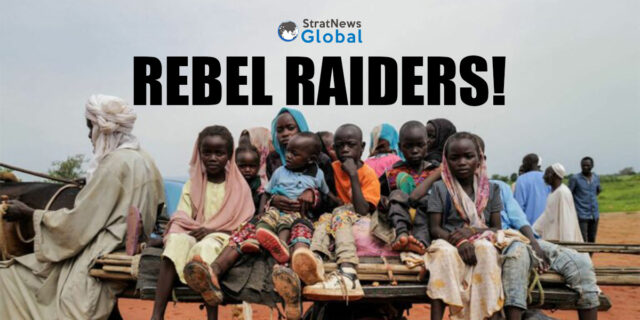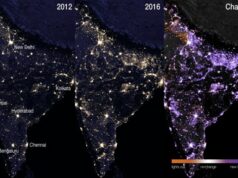In Sudan, when fighters from the Rapid Support Forces (RSF) began seizing vehicles from people in Sharafat Alhalaween village, local elders complained to commanders of the paramilitary group.
They assured the village during a March visit that the RSF would protect civilians, according to four residents. Soon afterward, the RSF posted a video on social media – reviewed by Reuters – claiming to have dealt with unspecified “rogue actors” in the area.
Armed Raiders
But the next morning, the residents told Reuters, dozens of fighters stormed in on motorcycles and pickup trucks, firing guns in the air. The fighters, some in uniforms, went door to door grabbing money and valuables, prompting an exodus of thousands of people, they said.
The residents’ accounts echo ones from across Sudan’s central El Gezira state, a key farming region and strategic crossroads just south of the capital, Khartoum.
Reuters interviewed 43 people from 20 communities – including residents, activists and RSF recruits – who described a spiral of looting, kidnapping and killing after the group seized most of the state in December.
The RSF has sought to convey in videos like the one posted in March that it is protecting civilians and providing food and services. But residents said the paramilitary group relies on a mix of irregular fighters, many motivated by bounty, and it often struggles to control them.
The Sudanese Armed Forces, which shared power with the RSF in a military-led government until fighting erupted between them in April 2023, has carried out airstrikes in El Gezira but has few ground forces there, according to residents and local activists. The military mobilised civilians to defend their communities, triggering deadly retribution, they said.
Thousands Displaced
The violence has driven over 850,000 people from their homes, the United Nations says, disrupted farming critical to Sudan’s food production and raised questions about the RSF’s ability to enforce any truce after nearly 16 months of war.
“Some RSF officials admit that the group will face huge internal challenges should the war ever stop,” said Alan Boswell of the International Crisis Group, a Brussels-based think tank. “It is bound together by conquest and the spoils of war.”
The RSF denied targeting civilians or lacking command and control of its forces.
“The army, Islamist militias and criminals looted the state systematically in order to scapegoat our forces,” it said in a statement to Reuters. “Our forces clashed with these rogue actors, and our commanders and soldiers died in that effort.”
A military spokesman, Brigadier General Nabil Abdullah, dismissed the RSF’s allegations as lies, saying the group and its mercenaries “committed every conceivable violation” against El Gezira’s citizens.
Across Sudan, the RSF has repeatedly overwhelmed the military thanks in part to alliances forged with tribal militias and other armed groups. In July, it used El Gezira as a springboard to push into Sennar, White Nile and Gedaref states, triggering new waves of displacement and expanding the conflict through Sudan’s agricultural heartland.
A fifth of the country’s 50 million inhabitants have fled their homes, and around half are facing food insecurity, mainly in areas under RSF control, according to U.N. officials who describe the humanitarian crisis as the world’s worst.
International efforts to mediate between the sides have made little headway, though the United States is leading efforts to convene talks in Geneva.
The RSF says it is open to negotiating a ceasefire and humanitarian access. The military says it cannot negotiate until the RSF exits civilian areas and stops abuses.
With Reuters inputs
Thirty eight years in journalism, widely travelled, history buff with a preference for Old Monk Rum. Current interest/focus spans China, Technology and Trade. Recent reads: Steven Colls Directorate S and Alexander Frater's Chasing the Monsoon. Netflix/Prime video junkie. Loves animal videos on Facebook. Reluctant tweeter.





